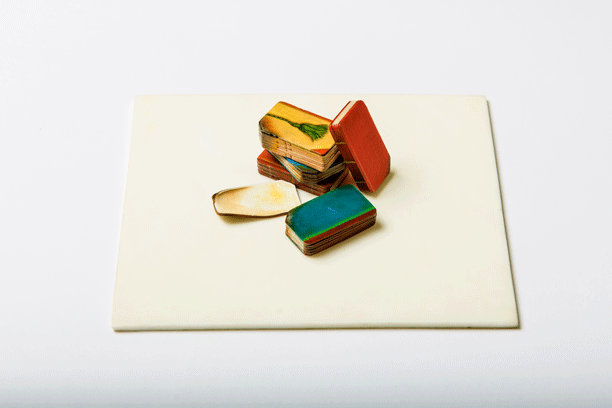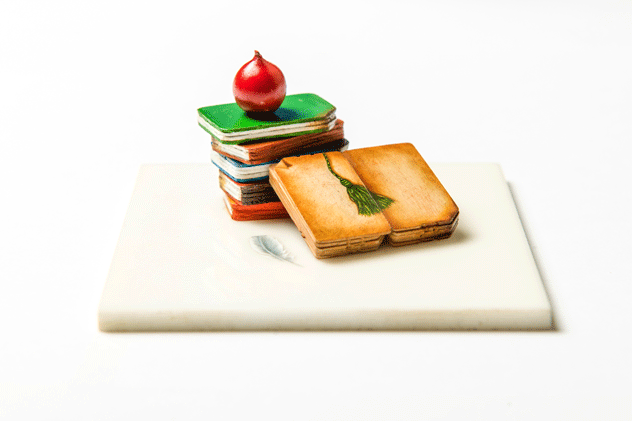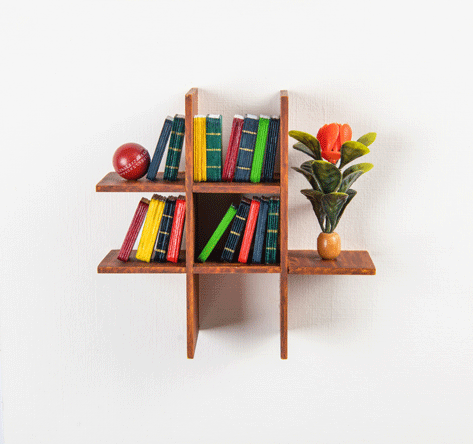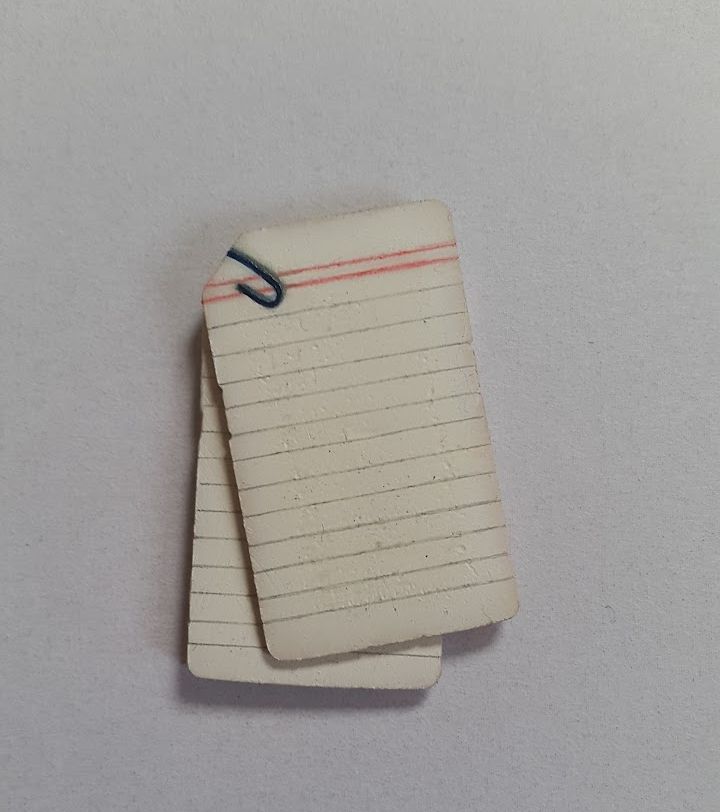Karachi-based artist Raheela Abro is not only a talented artist and teacher but also a subtle advocate for United Nation Sustainable Development Goals through her art highlighting Quality Education and Responsible Consumption. With over a decade of experience in the art world, Abro has exhibited her works in local and international galleries, including the prestigious Canvas Gallery in Karachi. Abro's passion for sustainability is reflected in her teachings at several art schools in Karachi, where she encourages her students to explore the intersection of art and sustainable practices. With her ongoing pursuit of a Ph.D. and a Master's in Art Education, Abro continues to push boundaries and create meaningful works that inspire to reflect on the importance of sustainability in people’s lives.
Pakistan generates a significant amount of electronic waste, and discarded SIM cards are a major contributor. With over 181 million cellular subscribers, SIM card waste has become a growing environmental concern. Disposing of these cards has become a challenge due to the lack of proper infrastructure for e-waste management in the country. Improper disposal of SIM cards can release hazardous materials, such as mercury and cadmium, into the environment, leading to severe consequences on human health and the ecosystem.

In developing countries like Pakistan, there is a lack of proper e-waste management infrastructure, exacerbating the issue. The United Nations has recognized the need for sustainable consumption and production patterns to address the environmental and health hazards associated with e-waste, emphasizing the importance of responsible e-waste management.
In her recent art series, Abro created SIM using the elements of Souch (thought), Ilm (knowledge) and Maqam (position), which symbolize identity, information, position, faith, posterity, wealth, globalization and connectivity.

"Through my art practice, I aim to address the sustainable development of Pakistani society by exploring the concept of identity and its relationship with technology in a subtle way," Abro explained in an interview with Arts Help.
This specific artwork involves the use of deactivated SIM cards, which would otherwise end up as electronic waste, contributing to the growing problem of environmental pollution. By repurposing discarded SIM cards, Abro highlights the importance of reducing waste and minimizing our environmental impact. This approach aligns with the United Nations Sustainable Development Goal of Responsible Consumption and Production.

Through these discarded SIM cards, Abro brings attention to the need to bridge the digital divide and promote access to technology and knowledge for all as well. Her artwork encourages the viewer to reflect on the role of technology in shaping our not only our identities but also the importance of access to education and knowledge in a rapidly changing world, advocates for the United Nations Sustainable Development Goal of Quality Education, with a specific focus on promoting reading habits and knowledge access, as she discussed in an interview with Arts Help. Abro further emphasized that "The pandemic has highlighted the urgency of making education accessible and my works represent the transition to electronic devices as means of learning and teaching."
As an art teacher, Abro also aims to inspire her students to explore the intersection of art and Sustainable Development Goals. "I encourage them to think critically about the materials they use, and how their art can raise awareness about environmental issues. By incorporating sustainable practices into their art practice, my students can contribute towards a more sustainable future for all, " said Abro.

Abro innovatively brings the very crucial message of SDGs into her artwork and makes it relatable to people by highlighting socio-political issues through her miniature art. Her surface, recycled SIM cards have caught the attention of the diverse public who have received the important socio-political and environmental messages hidden in the strokes of her art. According to Durriya Kazi, an artist, writer and art educator, Raheela Abro's artwork provides an opportunity to delve into intricate “social and political issues” through intricately designed small items.
Overall, Abro's artwork serves as a powerful tool for raising awareness about environmental issues and promoting sustainable development in Pakistan and beyond.
